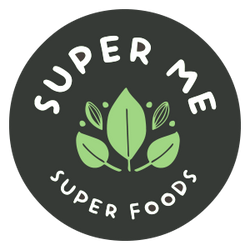Whey protein has long been the nutritional ingredient of choice for athletes and fitness enthusiasts, but as plant based diets take centre stage, what’s the difference and how do the benefits vary?
For some time now, a trend for dairy alternatives in the fitness community has continued to increase, enabling the multi billion industry to pivot in a new direction, with particular emphasis on natural and plant based resources such as hemp.
Hemp has long been the protein choice for vegans, lactose intolerant, and people who are allergic to dairy, but has largely remained backstage from mainstream fitness products, mainly because research into the plant didn’t really commence until about 10 years ago, and the focus was on the seeds and not the protein.
With so much choice on the market, let’s deep dive into these two very different nutritional powerhouses and see what they have to offer.
What is hemp?
Hemp is a strain of cannabis sativa, a plant that has been used by humanity for thousands of years. There is often some confusion around it’s relation to cannabis, marijuana and THC, so let’s clear that up.
Firstly, to be classed as hemp, it must contain less than 0.3% THC. Secondly, the seeds are the main attraction of the plant, milled for protein powder and also oil. Thirdly, hemp, although part of the cannabis family, is not the same as marijuana and is used very differently!
The hemp plant has heaps of diverse usages - it can be used as a nutritional seed oil, soap, clothing, paper, bio plastics and even insulation. New Zealand has a number of hemp farms, mainly situated on the south island and fast becoming known for high quality organic and sustainable hemp.
Why is hemp suddenly so popular?
You’ve probably read or heard a lot about hemp in recent years, particularly as people explore alternative diets and nutrition, and education and research into the hemp plant expanded.
Hemp is considered a complete protein as it contains all 9 essential amino acids - this isn’t widely known, especially as whey protein has been hogging the limelight for so long!
One of the reasons it has gained so much applause, is the anti-inflammatory properties offered by hemp. Research has shown that the essential fatty acids hemp protein provides, may reduce and alleviate inflammation, an added bonus for any supplement.
Is whey protein on its way out?
Not at all. Whey protein remains the most popular choice from all the proteins and plenty of studies prove its potent ability to improve blood lipids and stimulate muscle growth.
Whey protein contains more protein than hemp protein and although it has no fibre, it has a faster absorption rate, so there are pluses for both proteins.
What’s the difference between hemp and whey?
Whey protein is the rock n roll star of protein supplements. It’s the most widely researched, is easily digestible and contains all 9 essential amino acids. Available across the globe, whey protein has been around for years and lives in the backpacks of athletes and fitness enthusiasts as it offers so many benefits.
Research suggests the benefits of whey protein includes; the promotion of lean muscle growth, use as an appetite suppressant, improve glycemic control and protect against oxidative stress. There have also been studies that suggest whey stimulates the growth of healthy gut bacteria.
Unlike its dairy based cousin, hemp protein is plant based and is a popular alternative for many. Although hemp may not be considered as beneficial as whey (it contains less protein), it offers more calcium, fibre, iron and healthy fats, in addition to phytonutrients and antioxidants that cannot be produced by milk and dairy. That’s a plant that packs a punch!
What’s best for me?
The choice is yours! Maybe you’d like to find a vegan option to compliment your other supplements? Either way, both proteins deliver a considerable number of benefits and it could well come down to your own lifestyle.
Here’s a high-level at a glance nutritional breakdown of both proteins to help you get to grips with the good stuff.
|
HEMP PROTEIN |
WHEY PROTEIN |
|
|
Calories |
113 calories |
100 calories |
|
Protein |
12.6 grams of protein |
20 grams of protein |
|
Carbs |
7 grams of carbs |
20 grams of carbs |
|
Fibre |
4.8 grams of fibre |
n/a |
|
Fat |
3.4 grams of fat |
0 grams of fat |
|
RDA Calcium |
15% of RDA of calcium |
9% RDA calcium |
|
RDA Iron |
23% of the RDA of iron |
